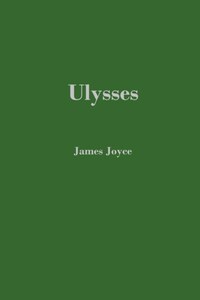It was a clear day in September. The boisterous winds which had swept the wide Canadian plain all summer had fallen and only a faint breeze stirred the yellowing leaves of the poplars. Against the glaring blue of the northern sky the edge of the prairie cut in a long, straight line; above the southern horizon rounded cloud-masses hung, soft and white as wool. Far off, the prairie was washed with tints of delicate gray, but as it swept in to the foreground the color changed, growing in strength, to brown and ocher with streaks of silvery brightness where the withered grass caught the light. To the east the view was broken, for the banks of a creek that wound across the broad level were lined with timber – birches and poplars growing tall in the shelter of the ravine and straggling along its crest. Their pale-colored branches glowed among the early autumn leaves.
In a gap between the trees two men stood resting on their axes, and rows of logs and branches and piles of chips were scattered about the clearing. The men were dressed much alike, in shirts that had once been blue but were now faded to an indefinite color, old brown overalls, and soft felt hats that had fallen out of shape. Their arms were bare to the elbows, the low shirt-collars left their necks exposed, showing skin that had weathered, like their clothing, to the color of the soil. Standing still, they were scarcely distinguishable from their surroundings.
Harding was thirty years old, and tall and strongly built. He looked virile and athletic, but his figure was marked by signs of strength rather than grace. His forehead was broad, his eyes between blue and gray, and his gaze gravely steady. He had a straight nose and a firm mouth; and although there was more than a hint of determination in his expression, it indicated, on the whole, a pleasant, even a magnetic, disposition.
Devine was five years younger and of lighter build. He was the handsomer of the two, but he lacked that indefinite something about his companion which attracted more attention.
"Let's quit a few minutes for a smoke," suggested Devine, dropping his ax. "We've worked pretty hard since noon."
He sat down on a log and took out an old corncob pipe. When it was filled and lighted he leaned back contentedly against a friendly stump.
Harding remained standing, his hand on the long ax-haft, his chin slightly lifted, and his eyes fixed on the empty plain. Between him and the horizon there was no sign of life except that a flock of migrating birds were moving south across the sky in a drawn-out wedge. The wide expanse formed part of what was then the territory of Assiniboia, and is now the province of Saskatchewan. As far as one could see, the soil was thin alluvial loam, interspersed with the stiff "gumbo" that grows the finest wheat; but the plow had not yet broken its surface. Small towns were springing up along the railroad track, but the great plain between the Saskatchewan and the Assiniboine was, for the most part, still a waste, waiting for the tide of population that had begun to flow.
Harding was a born pioneer, and his expression grew intent as he gazed across the wilderness.
"What will this prairie be like, Fred, when those poplars are tall enough to cut?" he said gravely, indicating some saplings beside him. "There's going to be a big change here."
"That's true; and it's just what I'm counting on. That's what made me leave old Dakota. I want to be in on the ground-floor!"
Harding knit his brows, and his face had a concentrated look. He was not given to talking at large, but he had a gift of half-instinctive prevision as well as practical, constructive ability, and just then he felt strangely moved. It seemed to him that he heard in the distance the march of a great army of new home-builders, moving forward slowly and cautiously as yet. He was one of the advance skirmishers, though the first scouts had already pushed on and vanished across the skyline into the virgin West.
"Well," he said, "think what's happening! Ontario's settled and busy with manufactures; Manitoba and the Dakotas, except for the sand-belts, are filling up. The older States are crowded, and somebody owns all the soil that's worth working in the Middle West. England and Germany are overflowing, and we have roughly seven hundred miles of country here that needs people. They must come. The pressure behind will force them."
"But think what that will mean to the price of wheat! It's bringing only a dollar and a half now. We can't raise it at a dollar."
"It will break the careless," Harding said, "but dollar wheat will come. The branch railroads will follow the homesteads; you'll see the elevators dotting the prairie, and when we've opened up this great tableland between the American border and the frozen line, the wheat will pour into every settlement faster than the cars can haul it out. Prices will fall until every slack farmer has mortgaged all he owns."
"Then what good will it do? If the result is to be only mortgages?"














